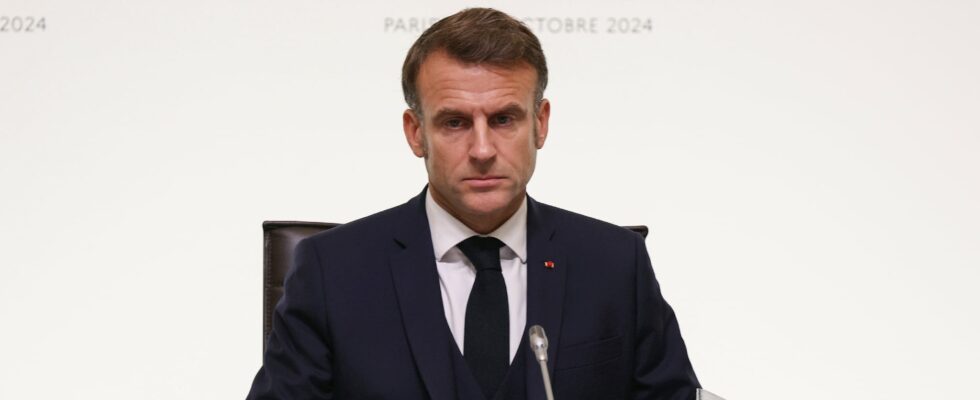A conclusive French initiative. This Thursday, October 24, nearly 70 countries, including the heads of German and Canadian diplomacy and the Saudi deputy minister, and 15 international organizations gathered in Paris for the international conference on Lebanon. An opportunity to advance several burning issues at a time when the conflict in the Middle East threatens to gain momentum. L’Express looks back at the notable announcements and declarations.
A billion dollars in aid
“The international conference on Lebanon in Paris made it possible to raise more than 800 million dollars in humanitarian aid and 200 million in aid for the army,” announced the head of French diplomacy Jean-Noël Barrot. A pride for the international community which only hoped for half of it. As a reminder, on October 1, an appeal for funds was launched by the UN to obtain aid of more than 400 million dollars for Lebanon. The objective: to help people displaced by the conflict in the Middle East.
And it was France which led the way this Thursday by announcing at the start of the conference to release 100 million euros. This was followed by the German government, “committed to providing a total of 96 million additional euros to deal with the crisis in Lebanon” and London with more than 15 million pounds, or 18 million euros. “The aim is to reach internally displaced people and ensure social, economic and institutional stability in Lebanon,” reads a statement from the German Ministries of Foreign Affairs and Economic Cooperation . The United States is among the main contributors with an envelope of 300 million dollars, despite the notable absence of Secretary of State Antony Blinken. Finally, Josep Borrell, head of European diplomacy, announced that the European Union would provide 20 million euros this year for the Lebanese army and 40 million next year.
Calls for a ceasefire
Another statement to remember: that of the Lebanese Prime Minister. “Lebanon calls on the international community to stand together and support efforts to put an end to the ongoing aggressions and implement an immediate ceasefire,” asked Najib Mikati, addressing state representatives present this Thursday . A request supported by all participating countries. “We agreed on the urgency of a diplomatic solution, making it possible to ensure lasting security for the population in Israel and in Lebanon,” announced Jean-Noël Barrot.
And by “ensuring lasting security”, the international community intends to fully implement Resolution 1701, “with a cessation of hostilities on both sides of the border”. This United Nations resolution stipulates that only peacekeepers and the Lebanese army must be deployed in southern Lebanon, which borders Israel. In 2006, this resolution demonstrated its effectiveness by putting an end to the previous war between Israel and Hezbollah.
But today, in the absence of Israel and Iran who were not invited to the international conference on Lebanon, and Antony Blinken who did not make the trip to Paris, the The promised diplomatic advances failed to see the light of day. A pattern reminiscent of September 2024. Last month, the United States and France made a proposal for a temporary ceasefire during the United Nations General Assembly. An initiative which had received the support of many countries but which for the moment still awaits that of Israel.
